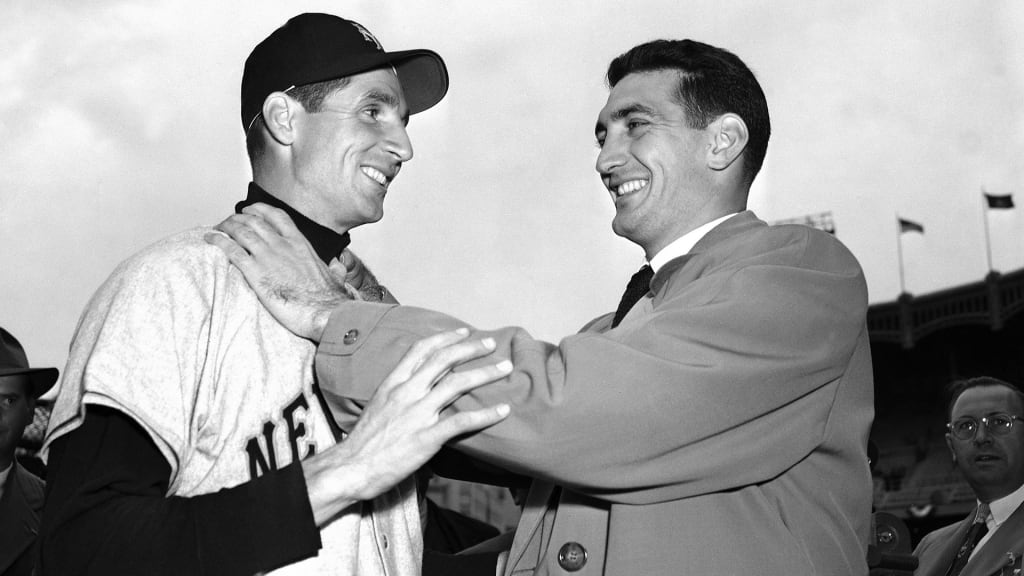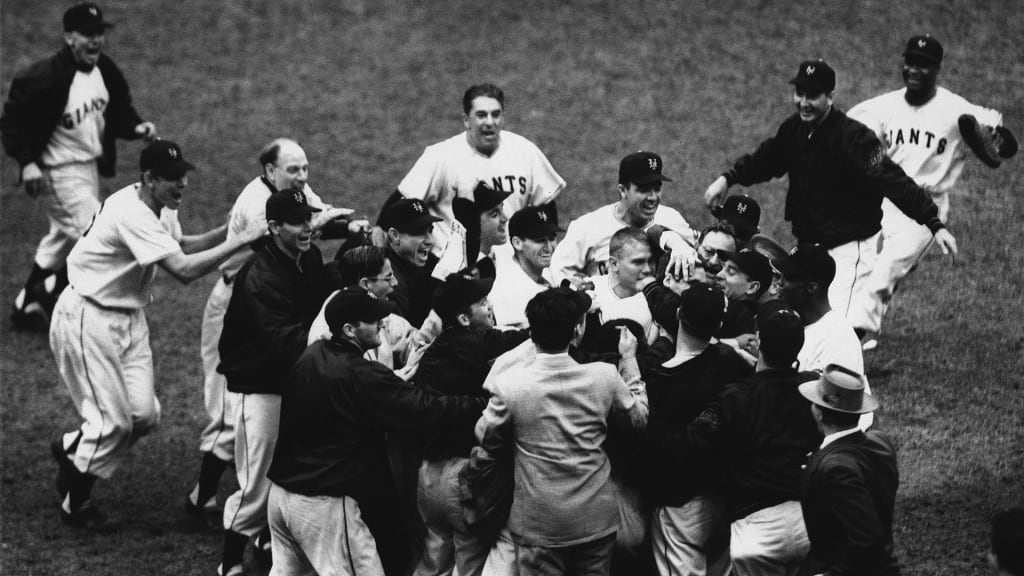There are moments in baseball that transcend the sport. Babe Ruth’s called shot in the 1932 World Series was one of those. So was Hank Aaron’s 715th home run on April 8, 1974, in which he passed Ruth to become the new all-time home run king.
However, perhaps no home run in the baseball canon looms larger than Bobby Thomson’s “Shot Heard ‘Round The World” on Oct. 3, 1951, which capped the Giants’ miraculous rise in the standings en route to the National League pennant and left the Dodgers stunned in defeat.
The two main characters in this story are Thomson and the pitcher who surrendered the famous long ball, Ralph Branca. They are inextricably linked in baseball lore thanks to the events of this crisp October afternoon. But the supporting cast that led to this iconic moment extended far beyond a single pitcher and batter.

On Aug. 11, 1951, the Dodgers led the Giants by 13 games in the NL standings. They looked poised to capture the sixth pennant in franchise history, while the Giants’ hopes of making their first World Series appearance since 1937 seemed dead in the water. Then, a funny thing happened. The Giants simply stopped losing.
From Aug. 12 on, New York won 39 of its final 47 games, while Brooklyn’s record over that span was 26-22. The two clubs, an ocean apart over the summer, finished September tied in the standings. A three-game playoff was scheduled to determine which club would be facing the Yankees in the Fall Classic. For three days, the eyes of the baseball world were on Ebbets Field and the Polo Grounds.
The Giants won the first game, 3-1, behind a complete game from Jim Hearn and home runs from Thomson and Monte Irvin. Thomson homered off Branca, the Dodgers’ starter, putting the Giants ahead for good. Sound familiar?
Round two of the three-game playoff went to Brooklyn, which steamrolled its rival, 10-0, thanks to a shutout from Clem Labine and four home runs against New York’s pitching staff. It all came down to Game 3.
On Oct. 3, 34,320 fans gathered at the Polo Grounds -- a notably low figure in a winner-take-all game for a stadium that held over 54,000 fans. Don Newcombe matched up against Sal Maglie on the mound. The Dodgers got off to a fast start in the first thanks to an RBI single from Jackie Robinson, which stood as the game’s only run until the Giants evened the score in the bottom of the seventh on a sacrifice fly from, who else, Thomson.
Brooklyn answered back in the top of the eighth, scoring three runs and taking a 4-1 lead into the bottom of the ninth. Newcombe remained on the mound, three outs away from sending the Dodgers to the World Series.
As history will tell, those three outs never came.
Al Dark and Don Mueller got things going for the Giants with back-to-back singles leading off the frame, bringing the tying run to bat with nobody out. After a foul popup by Irvin, first baseman Whitey Lockman inched his club closer with an RBI double, which brought up Thomson as the winning run. Newcombe was pulled in favor of Branca, who had allowed the aforementioned go-ahead homer to Thomson two days prior.
After delivering a fastball for strike one, Branca poured in another heater. Thomson was ready for it. He swung as hard as he could and connected with the pitch, pulling it high and deep to left. As it sailed over the fence, Giants radio announcer Russ Hodges let out the immortal, repeated cry: “The Giants win the pennant! The Giants win the pennant!”
(As an interesting side note, Hodges’ scorecard from that game is in the Hall of Fame, but it is incomplete. He was so overcome with emotion while making the iconic call that he forgot to record Thomson’s homer in his scoresheet. Sometimes, an unfinished box score tells a thousand words.)

“I remember kind of hyperventilating as I floated around the bases,” Thomson recalled in a 2006 interview. “I knew what I had done, but it was just too amazing to believe. I went around third, came toward home and made one last big leap onto the plate and into my teammates’ arms. Soon enough, I was on top of Whitey Lockman’s shoulders, and there were people swarming all around us. It was so loud for so long. It was an incredible roar that just lasted and lasted.”
"All I could say was, 'Sink, sink, sink.’ But I knew it was gone all the way,” Branca recounted in a 2014 interview. "I was a good pitcher, but I was only known for throwing Thomson that home run pitch. That gave me notoriety. People say I became famous, but I say I became infamous."
Had Thomson not come through, none other than Willie Mays was waiting in the on-deck circle, and he might have provided the heroic moment himself. But alas, the stars aligned for Thomson that day. After his moment in the sun as the pennant-winning hero, he spent two more seasons with the Giants (who ultimately lost the 1951 World Series to the Yankees in six games) and nine more in the Majors overall, finishing his career in 1960 with 264 home runs -- none bigger than the “Shot Heard ‘Round The World.”
Meanwhile, Branca pitched in 16 games for Brooklyn the following year before bouncing around to the Tigers, Yankees and back to the Dodgers to finish his career in 1956. He won only 12 more games after allowing the home run to Thomson (who never again recorded a hit off Branca). His baseball legacy lived on through his son-in-law, former MLB player and manager Bobby Valentine.
Following the “Shot Heard ‘Round The World,” Branca and Thomson were forever inseparable in the eyes of the public. They appeared on "The Ed Sullivan Show" the following February, did numerous interviews together and even threw out the first pitch before Game 5 of the 1991 World Series.
The “Shot Heard ‘Round The World” has not escaped scrutiny. Decades later, it emerged that the Giants used an elaborate sign-stealing scheme throughout the second half of the 1951 season. Thomson acknowledged his involvement with the sign stealing in the early 2000s, but maintained until his death in 2010 that he did not know what pitch was coming before he hit his historic homer.
Despite this controversy, the monumental nature of Thomson’s comeback-clinching blast, which capped a meteoric rise to the top of the standings, may never be topped.
